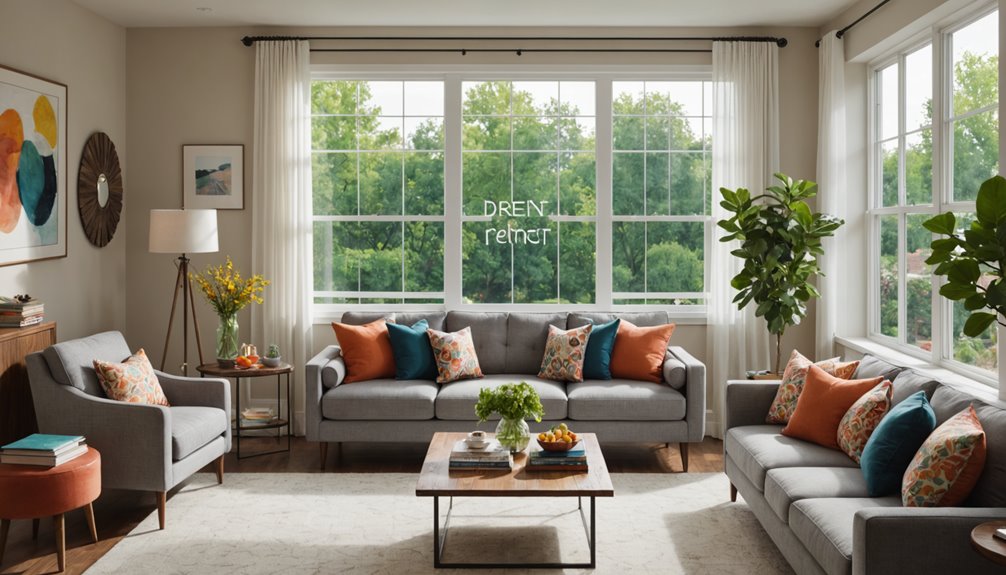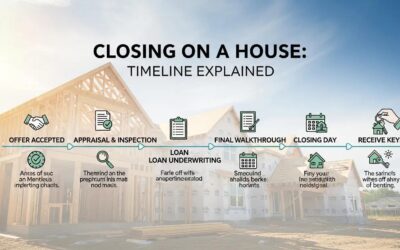Deciding whether to rent or buy a home involves analyzing the current housing market, private finances, and lifestyle goals. Renting offers lower monthly costs and flexibility, but buying provides stability and the potential for equity accumulation. Crucial factors include income stability, down payment options, and ongoing homeownership expenses. Before making a choice, people should evaluate their long-term aspirations and the local genuine estate landscape. Exploring the diverse considerations in depth will prove invaluable to improve decision-making.
Key Takeaways
- Before deciding to rent or buy, assess your financial readiness by evaluating income stability, savings, and debt-to-income ratio.
- To evaluate affordability and investment potential, consider the current housing market conditions, including mortgage rates and price growth.
- Understand the pros and cons of renting versus buying, including flexibility, equity accumulation, and upfront costs.
- Research neighborhoods thoroughly, focusing on safety, school quality, and proximity to amenities that align with your lifestyle.
- Establish a budget that caps housing costs at 28% of your income and accounts for ongoing homeownership expenses.
Should You Rent or Buy in Today’s Market?
Evaluating Your Financial Readiness
Evaluating financial readiness is crucial for prospective homebuyers seeking to navigate the complexities of purchasing a primary home. A thorough assessment can provide clarity and confidence in decision-making. Key factors to take into account include:
- Assess Income Stability: Confirm a steady income history, ideally with two years of consistent employment.
- Evaluate Savings and Down Payment: Aim for a down payment between 3% to 20% and account for closing costs.
- Manage Debt and Credit Health: Maintain a debt-to-income ratio below 36% and a credit score of 620 or higher.
- Establish Emergency Funds: Save at least three to six months of living expenses for unforeseen circumstances. Additionally, understanding down payment requirements is essential for successful homeownership, as it directly affectsloan-to-value ratios and lender risk.
The Pros and Cons of Renting vs. Buying

Understanding one’s financial readiness sets the stage for a pivotal decision: whether to rent or buy a home. Each option presents unique advantages and disadvantages, influencing one’s sense of belonging and stability.
| Renting | Buying | |
|---|---|---|
| Pros | Lower monthly costs | Equity accumulation |
| Flexibility to relocate | Stability and permanence | |
| Cons | Risk of rent increases | Higher upfront costs |
Renting offers short-term flexibility and lower costs, ideal for those uncertain about their future. Conversely, buying fosters long-term stability and investment potential, appealing to persons seeking permanence. Evaluating these factors helps people align their housing choices with their private and financial aspirations.
Additionally, homeownership can hedge against rising shelter costs, making it a valuable consideration for the future. Understanding financial capacity is essential to determining the best approach for your situation.
Key Factors to Consider in Your Decision
When considering an initial home purchase, it is essential to evaluate financial stability, market conditions, and long-term lifestyle goals. A thorough assessment of private finances, including income, expenses, and savings, will influence the general affordability of homeownership. Furthermore, understanding the current housing market and aligning housing choices with future aspirations can significantly impact the success of this investment.
Additionally, family priorities often play a crucial role in shaping homebuying decisions, making it essential to consider how your choices will affect your loved ones. The seasonal fluctuations in Florida’s real estate market can significantly impact your buying strategy.
Financial Stability Assessment
A thorough financial stability assessment is crucial for prospective homebuyers, as it lays the foundation for informed decision-making. Key factors to reflect on include:
- Income and Employment Stability: Guarantee consistent income and a minimum of two years of employment for loan approval.
- Savings and Down Payment: Aim for a 20% down payment, plus 2-5% for closing costs, while maintaining an emergency fund.
- Debt Management and Credit Health: Keep a debt-to-income ratio below 36% and maintain a credit score of at least 620.
- Long-Term Financial Obligations: Factor in hidden costs like maintenance and property taxes to gauge total affordability.
Market Conditions Analysis
As prospective homebuyers navigate the complexities of the housing market, an analysis of current market conditions becomes essential for making informed purchasing decisions. The anticipated rise in for-sale inventory by 11.7% in 2025, alongside a moderate home price increase of 3.7%, presents a more favorable landscape for buyers. Stability in mortgage rates, projected around 6%, could increase homeownership accessibility for millions.
Furthermore, the emerging buyer’s market improves negotiation power, allowing for price reductions and repair requests. Working with a realtor can further enhance a buyer’s ability to navigate these conditions effectively. Regional variations, influenced by migration patterns and local inventory, further underscore the significance of tailored strategies for prospective buyers. Understanding these dynamics equips people to make confident choices in their pursuit of a new home.
Long-Term Lifestyle Goals
Deciding to purchase a home involves careful consideration of long-term lifestyle goals, where aspirations for stability, community, and personal growth play pivotal roles. Potential homeowners should evaluate the following factors:
- Financial Priorities: Assess home equity accumulation and the stability of fixed-rate mortgages versus rising rent costs. SBrillianttiming can yield significant long-term benefits.
- Career Considerations: Consider job longevity and the implications of potential relocations on homeownership.
- Family Needs: Verify that the home size and layout can adapt to evolving family dynamics and local amenities.
- Geographic Commitment: Reflect on the desire for permanence versus flexibility in living arrangements.
Steps to Prepare for Homeownership
Preparing for homeownership requires a thorough evaluation of neighborhood options and a solid budget and savings plan. Potential buyers must research different areas to identify communities that align with their lifestyle and financial capabilities. Establishing a detailed budget will help guarantee that they are financially prepared for both the initial purchase and ongoing homeownership costs.
Additionally, utilizing local assistance programs can provide crucial support in making homeownership more affordable.
Research Neighborhood Options
Researching neighborhood options is a fundamental step in the process toward homeownership, as the right location can significantly influence both lifestyle and property value. Prospective homeowners should consider several critical factors:
- Crime rates and safety: Utilize crime maps and reports to assess neighborhood safety.
- School district quality: Investigate school rankings for family needs through educational websites.
- Proximity to amenities: Check distances to groceries and parks using mapping tools for convenience.
- Noise and traffic conditions: Observe the area at different times to evaluate livability.
Budget and Savings Plan
Identifying the right neighborhood sets the stage for the next pivotal aspect of homeownership: establishing a thorough budget and savings plan. This plan involves evaluating current finances, determining home affordability, forecasting ongoing expenses, and setting up a savings strategy. By applying key financial rules and adjusting spending habits, prospective homeowners can create a sustainable path to ownership.
| Step | Key Considerations | Suggested Allocation |
|---|---|---|
| Evaluate Current Finances | Track income vs. expenses | 50% Needs, 30% Wants, 20% Savings |
| Determine Home Affordability | Cap housing costs at 28% of income | Total debt below 36% of income |
| Set Up Savings Plan | Budget for down payment and closing costs | 3-20% for down payment, 2-5% for closing |
These steps not only improve financial readiness but also foster a sense of belonging in the community.
Making the Right Choice for Your Lifestyle

How does one determine the best housing option in a landscape marked by financial uncertainty and shifting demographics? Persons must weigh their lifestyle preferences against economic realities. As more people prioritize flexibility, renting offers immediate affordability, especially in urban centers where rent averages $1,979 versus a mortgage of $2,703. Potential buyers should consider:
- Financial stability and job security.
- Length of intended stay in the area.
- Private goals regarding homeownership.
- Current market trends and interest rates.
With 57% of renters unsure about buying, understanding these factors becomes essential. The shifting perspectives on ownership, significant among younger generations and boomers, highlight the importance of making a choice that aligns with one’s lifestyle aspirations and current financial landscape. Additionally, evaluating the current housing market is crucial for making informed decisions about buying or renting.
Frequently Asked Questions
How Do Local Market Conditions Affect Rent vs. Buy Decisions?
Local market conditions critically shape financial decisions, influencing affordability and accessibility. Variations in rental costs, home prices, interest rates, and regional economic factors dictate whether persons find more excellent stability and belonging through renting or buying.
What Impact Does My Credit Score Have on Mortgage Options?
A credit score acts as a financial compass, guiding persons toward favorable mortgage options. Higher scores release lower interest rates, translating to significant long-term savings, while lower scores often result in higher costs and limited choices.
Are There Financial Aid Programs for First-Time Homebuyers?
Numerous financial aid programs exist for novice homebuyers, offering down payment assistance and favorable mortgage terms. These initiatives aim to improve affordability, especially for crucial workers, ensuring diverse persons can achieve homeownership despite economic constraints.
How Do Inflation Rates Influence Long-Term Homeownership Costs?
As inflation rates rise, the cost of homeownership spirals upward, creating financial burdens that echo through generations. Increased mortgage payments and diminished purchasing power amplify long-term expenditures, challenging the dream of stability and belonging in homeownership.
What Are Typical Closing Costs When Buying a Home?
Typical closing costs when purchasing a home range from 3-6% of the loan amount. These fees encompass different fees, such as title insurance, appraisal charges, and loan origination fees, significantly impacting buyers’ total financial commitment.
Conclusion
In the complex decision of renting versus buying, the adage “home is where the heart is” resonates profoundly, emphasizing the sentimental weight of such a choice. Ultimately, people must weigh their financial readiness, lifestyle preferences, and market conditions carefully. By conducting thorough research and reflecting on private circumstances, prospective homeowners can make an informed decision that aligns with their long-term goals. The path toward homeownership is significant, and with proper preparation, it can lead to fulfilling and lasting stability.
References
- https://www.mutual-assurance.com/post/renting-and-first-time-home-buying-stats-have-changed
- https://ofdollarsanddata.com/should-you-rent-or-buy-a-house/
- https://www.bankrate.com/real-estate/rent-vs-buy-affordability-study/
- https://www.avail.co/education/articles/first-time-home-buyer-guide
- https://www.freddiemac.com/research/pdf/202411-Note-November-2024-Renting-vs-Owning.pdf
- https://www.jpmorgan.com/insights/global-research/real-estate/us-housing-market-outlook
- https://www.har.com/blog_130964_should-you-rent-or-buy-your-home
- https://www.businessinsider.com/personal-finance/mortgages/housing-market-predictions
- https://www.nar.realtor/buying-vs-renting
- https://www.nar.realtor/magazine/real-estate-news/whats-next-for-the-2025-housing-market







